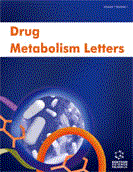Abstract
Background: Common marmosets (Callithrix jacchus) and cynomolgus monkeys (Macaca fascicularis) are used as non-human primate models in preclinical studies for drug development.
Objective: The assessment of P450 induction in hepatocytes from marmosets and cynomolgus monkeys was performed using typical P450 inducers. Methods: Induction of cytochrome P450 1-4 family enzymes was analyzed in two lots of cultured hepatocytes from common marmosets and cynomolgus monkeys after 24-h treatment with typical human P450 inducing agents by real-time reverse transcription-polymerase chain reaction. Results: Marmoset P450 3A4 mRNA and P450 2C8/2C19 mRNA in hepatocytes were strongly (>10- fold) and weakly (>2) induced by rifampicin, respectively. Marmoset 1A1 and 1A2 mRNA were induced strongly (>200-fold) by β-naphthoflavone and omeprazole. Marmoset P450 2B6 mRNA was induced (~5-fold) by a constitutive androstane receptor agonist, but not by phenobarbital. Cynomolgus monkey P450 3A4 mRNA and P450 1A1 mRNA in cultured hepatocytes were also induced by rifampicin and omeprazole, respectively, but P450 2B6 mRNA was not induced by phenobarbital. Conclusion: These results indicate that P450 1A/3A induction by typical human P450 inducers in hepatocytes from marmosets and/or cynomolgus monkeys are similar to those of humans (except for P450 2B induction by phenobarbital in humans), suggesting that marmosets and cynomolgus monkeys might be suitable models for evaluating the drug interactions in preclinical studies.Keywords: Common marmoset, cynomolgus monkey, cytochrome P450, drug interaction, hepatocytes, induction.
Graphical Abstract
Article Metrics
 27
27 1
1










